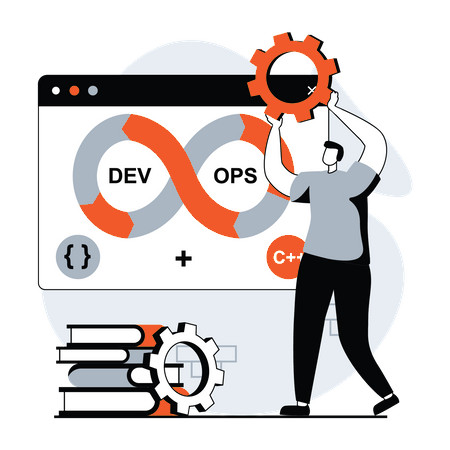What is an AI Agent & AI Agent Architecture?
An AI Agent could be a software entity that utilizes manufactured insights to independently execute assignments, connected with its environment, and make informed decisions to achieve particular objectives. These agents work over various spaces, counting client service (chatbots), handling robotization, and brilliantly information investigation, ceaselessly making strides through machine learning.
AI Agent Architecture defines the system and plan standards that administer how AI agents are created, worked, and coordinated with other systems. Key components incorporate:
Perception Modules – Prepare inputs such as content and pictures.
Decision-Making Engines – Utilize calculations to decide activities.
Action Modules – Execute choices effectively.
Learning Modules – Improve execution utilizing AI-driven learning.
A poorly designed AI agent architecture leads to wasteful aspects, with studies showing a 40-50% reduction in exactness and 35% slower preparation speeds. Inadequately learning modules prevent versatility, diminishing adequacy by 30%, whereas security vulnerabilities increase risks by 60%.
NextGenSoft, a pioneer in AI agents development, specializes in versatile AI solutions that upgrade decision-making by 50% and move forward handling exactness to 95%. As an expert AI agent developer, we coordinated microservices and cloud technologies to boost versatility by 40% while guaranteeing strong security.
Our AI agent consulting services optimize usage, lessening integration time by 30%. Partner with NextGenSoft for AI solutions that drive innovation, efficiency, and commerce development reach out and Contact Us to learn more.

Benefits of AI Agent Architecture

Enhanced Automation
They can perform repetitive and complex processes without any human intervention. This leads to increased efficiency, accuracy, and speed in workflows, allowing businesses to concentrate on strategic priorities.
Scalability and Flexibility
It provides built-in ghosting features; AI agent architecture easily blends into cloud architecture and microservices or use cases, making it easier for businesses to scale based on demand; AI agent frameworks allow to add or remove functionalities easily as per requirement.
Improved Decision-Making
AI agents process critical volumes of information in real time delivering actionable insights. This enables organizations to make data-driven decisions, leading to better performance and reduced risk.
Cost Efficiency
The AI agent architecture can reduce costs for the business by preparing tasks and optimizing the same. Cloud solutions also reduce costs, such as a pay-as-you-go model.
Personalized User Experiences
Improve your consumer’s interface and behavior while keeping them engaged with the utilization of customized machine learning, this is essential for industries like healthcare, customer service, e-commerce, etc. by AI agent solutions.
Faster Time-to-Market
In reality, AI representational plan incorporates unusual components and systems for the simplifications that give an advantage in quickening cycles of development, empowering endeavors to execute more clever solutions more rapidly and gain a competitive edge.
Challenges Without AI Agent Architecture
Inefficient Automation
Without a clear architecture, AI agents result in a scattered and inconsistent approach. It leads to low automation and high manual efforts leading to work redundancy.
Scalability Issues
During peak times, AI-related features are often difficult to scale within traditional systems, leading to degraded performance or even downtime. This causes performance bottlenecks and bad user-ratings.
High Development and Maintenance Costs
Creating AI agent solutions in a non-architected way comes about in duplicate endeavors and expanded upkeep costs due to the nonappearance of standardization.
Inconsistent Data Handling
Systems cannot handle and handle massive volumes of Information without AI agent architecture. This hampers decision-making and diminishes the esteem determined by AI.
Limited Integration with Modern Technologies
Application modernization may not find itself well-coupled or adjusted with conventional systems, and including sets such as cloud-based deployment can be a challenge, preventing development.
Best Practices to Be Followed in AI Agent Architecture
Adopt Modular Design with Microservices
Microservices can work as modular components of AI functionalities. This allows each feature to scale, be flexible, and to be developed and deployed independently.
Leverage Cloud-Based Solutions
Better performance hyper-scale, high availability, and cost efficiency using cloud architecture to deploy AI agents Cloud platforms also abstract the management, scaling, and provisioning of infrastructure for AI workloads.
Prioritize Data Security and Privacy
When dealing with client’s data, it becomes a foremost duty to comply, ensure, and establish stringent AI data security, this includes upgrading systems security measures and access to control data securely.
Implement Continuous Learning Mechanisms
Implement a machine learning pipeline to allow AI agents to continue learning as more data is provided. This allows the agents to maintain their level of proficiency and evolve with time.
Optimize for Real-Time Processing
Architect AI agents that would deal with real-time inputs and provide immediate outputs to perform well in real-world dynamic scenarios such as interaction with customers.
Focus on Interoperability
Make sure the architecture is planned for smooth integration with existing frameworks, APIs, and extra AI arrangements. This empowers the foremost beneficial use of AI agents overall levels of trade functions.
Use DevOps and CI/CD Practices
Minimize errors, guarantee uniform and accurate operations, upgrade workflows with regular updates, and more with the utilization of CI/CD pipelines that assist in automizing testing, development, quality checks, and deployment workflows.
Monitor and Evaluate Performance Regularly
Use analytics and monitoring tools, to track down the daily performances of AI agents. By regular evaluation of the performance, businesses can enable themselves to optimize algorithms, assess accuracy, and spot possible bottlenecks.
Why NextGenSoft?
End-to-End Expertise
Tackle our mastery in microservices architecture and serverless architecture services to build secure, versatile solutions. Our team plans vendor-agnostic strategies to maximize value while minimizing risk.
Delivery Excellence
Optimize your software delivery lifecycle with microservices vs. serverless architecture solutions. Achieve quicker, high-quality deployments, upgrading reliability and meeting client demands successfully.
Flexible Hiring Model
Scale your team easily with our versatile enlisting models for microservices architecture development. Access skilled experts tailored to your particular needs and project requirements.
Transparent Actions
Foster belief and alignment through open communication. NextGenSoft’s microservices consulting services ensure clarity at every step, from planning to execution, promoting consistent collaboration.
FAQs
-
What is AI Agent Development?
AI agent development involves designing and deploying intelligent agents capable of perceiving, analyzing, and making autonomous decisions. AI agent development services create adaptive solutions for automation, customer interactions, and complex problem-solving. -
How do AI Agents interact with their environment?
AI agents use AI agent architecture to perceive data, process information, and take actions based on predefined rules or learning algorithms, enabling them to respond dynamically to real-world changes. -
What are examples of AI Agents?
Examples incorporate chatbots, virtual assistants, independent robots, recommendation systems, and self-driving cars, all developed utilizing advanced AI agent solutions to improve automation and proficiency. -
How can I build my own AI agent?
Building an AI agent requires ability in AI agent development, selecting the right AI agents architecture, preparing models with important information, and deploying them with real-time decision-making capabilities. -
What is AI Agent Architecture?
AI agent architecture defines the structural framework of an AI agent, including perception, reasoning, and action layers, ensuring efficient decision-making and adaptability in various environments. -
What are the key types of AI Agent Architectures?
Key types include reactive, deliberative, hybrid, and learning-based architectures, each designed for different levels of autonomy, efficiency, and adaptability in AI agents development. -
What is the difference between reactive and deliberative agents?
Reactive agents respond instantly to stimuli without memory, while deliberative agents use reasoning, AI agent architecture, and stored knowledge to make informed decisions. -
What are multi-agent systems?
Multi-agent systems consist of different AI agents working together, frequently leveraging AI agent development services to upgrade collaboration, communication, and problem-solving in dynamic situations. -
Why is AI Agent Architecture important?
A well-structured agent architecture in AI guarantees ideal execution, versatility, and adaptability, empowering AI agents to handle complex assignments productively and improve automation. -
What industries use AI Agents?
Businesses like healthcare, finance, retail, logistics, and cybersecurity utilize AI agent consulting and AI agent arrangements to mechanize forms, progress decision-making, and upgrade client experiences.
Contact us

Submit Your Inquiry

Detailed Proposal

Collaborate and Plan



